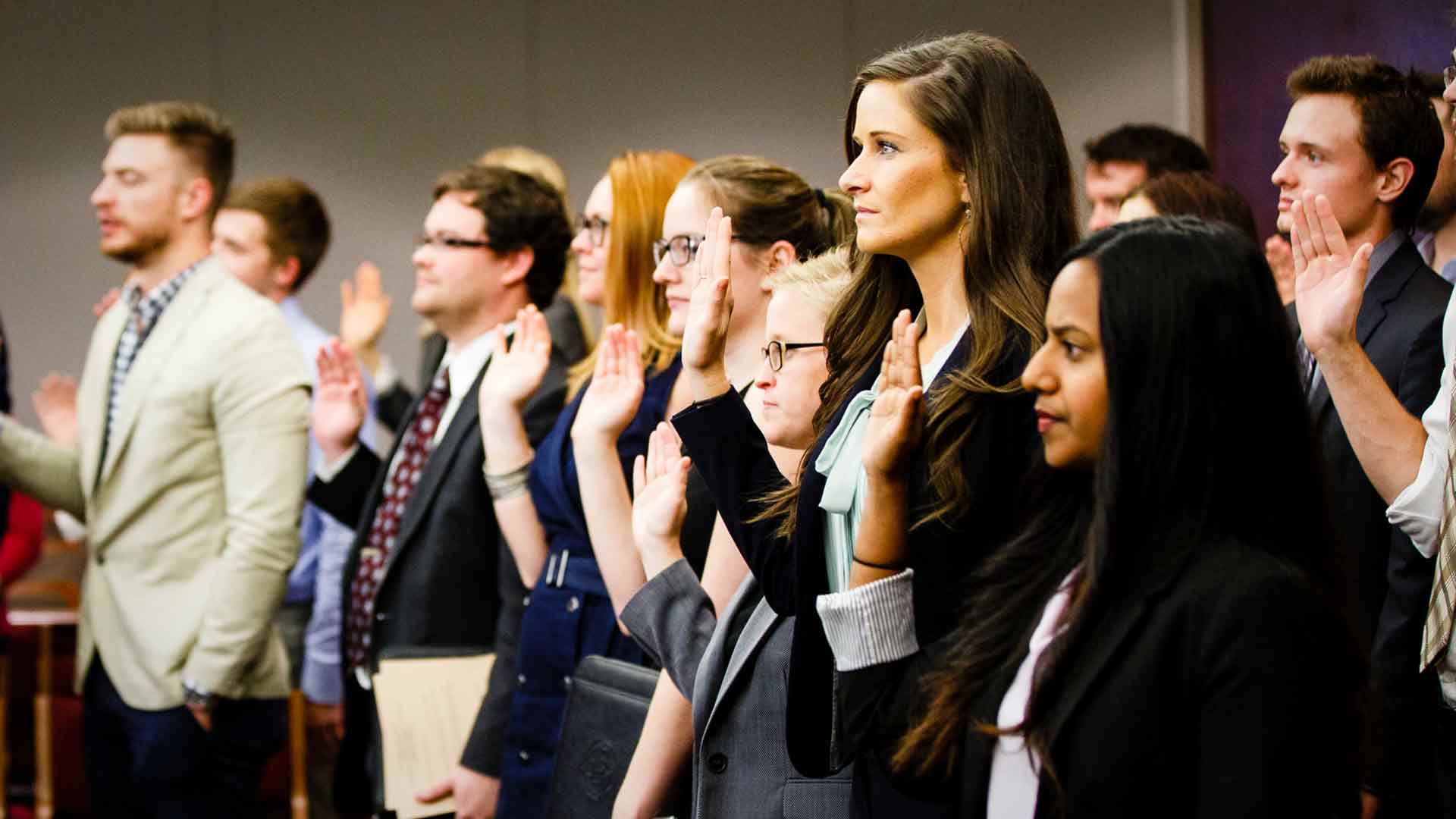Changes to Standard 303(b) and (c)
The Standard 303(b) and (c) accreditation changes approved by the ABA House of Delegates on February 14, 2022, are a major step forward for the national social movement.
“Standard 303(b): A law school shall provide substantial opportunities to students for: (1) law clinics or field placement(s); (2) student participation in pro bono legal services, including law-related public service activities; and (3) the development of a professional identity.”
Interpretation 303-5
“Interpretation 303-5: Professional identity focuses on what it means to be a lawyer and the special obligations lawyers have to their clients and society. The development of professional identity should involve an intentional exploration of the values, guiding principles, and well-being practices considered foundational to successful legal practice. Because developing a professional identity requires reflection and growth over time, students should have frequent opportunities for such development during each year of law school and in a variety of courses and co-curricular and professional development activities.”
“Standard 303(c): A law school shall provide training and education to law students on bias, cross-cultural competency, and racism.”
Interpretation 303-6
New Interpretation 303-6 adds that cross-cultural competency and the obligation of lawyers to promote a justice system that provides equal access and eliminates bias, discrimination, and racism in law should be among the values and responsibilities of the legal profession to which students are introduced.
“Interpretation 303-6: … the importance of cross-cultural competency to professionally responsible representation and the obligation of lawyers to promote a justice system that provides equal access and eliminates bias, discrimination, and racism in the law should be among the values and responsibilities of the legal profession to which students are introduced.”
Essentially, a law school that is fostering each student’s growth toward later stages of development on the foundational core value of internalizing deep responsibility and service to others whom the student will serve as a lawyer including clients, colleagues, and the legal system will be adding to that foundational core value attention to cross-cultural competency and a justice system that provides equal access and elimination of bias, discrimination, and racism in law.
